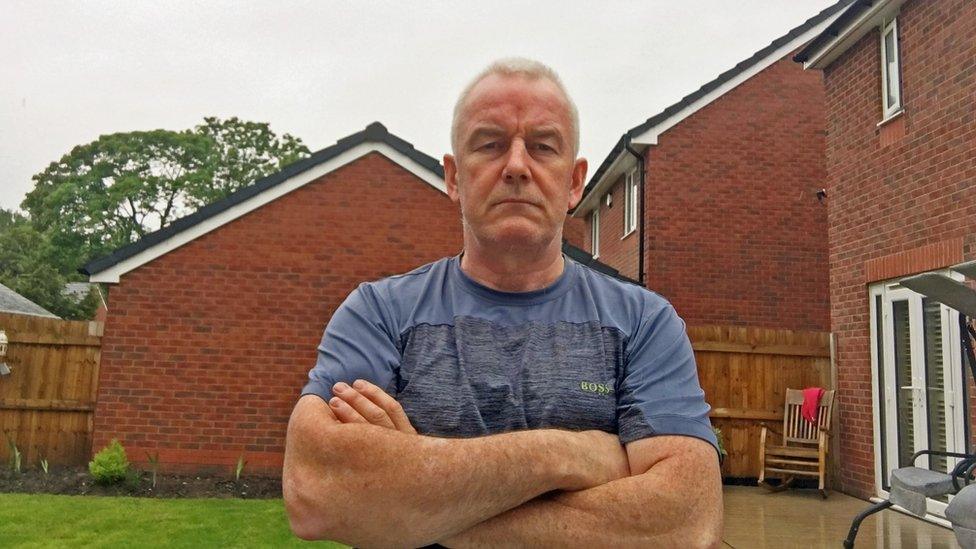The leasehold disputes taking an emotional toll
- Published
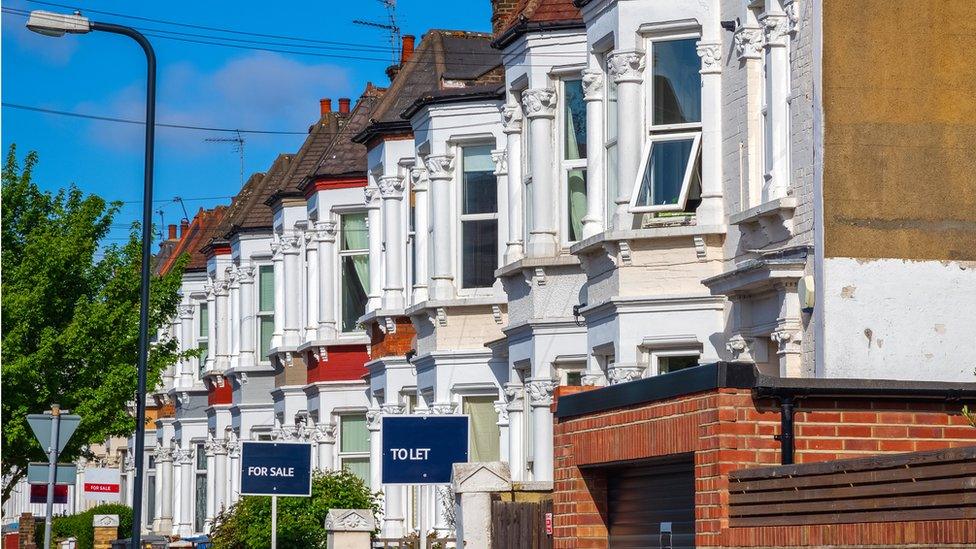
More than two-thirds of people who have encountered issues with their leasehold feel anxious about their future, a survey by the National Leasehold Campaign (NLC) suggests. For some, disputes have led to suicidal thoughts.
"It absolutely drains you. It makes you feel a failure, that you can't do anything," 'Lisa' - not her real name - told the BBC's Victoria Derbyshire programme.
"I'm not sleeping. It's affecting my work."
The leasehold flat that Lisa bought in 2007 has been repossessed.
The survey by the NLC, which lobbies to abolish leasehold homes in England and Wales, and charity SOS Silence of Suicide was taken by more than 1,150 people who had encountered leasehold problems.
The results suggested that 72% felt "very worried and anxious" about their future, and 17% had had suicidal thoughts as a direct result.
Anxiety 'off the rails'
A leaseholder owns the right to use a property for a fixed period of time - typically between 99 and 125 years for most buyers.
But it is the freeholder who owns the property outright, and the land on which it is built. They also decide what service charges are payable and can ask for necessary work to be carried out to ensure the property's upkeep.
In 2013, Lisa and others in her block of 21 flats were served an invoice for major works that initially totalled just short of £100,000 between them.
Works went ahead, but Lisa says that was when damp problems began to appear.
The costs then spiralled to £600,000, with Lisa's portion costing about £50,000.
By law, leaseholders must be consulted on service charges before any works are carried out.
But the freeholder of Lisa's block took the residents to a tribunal and won the case, which meant that the consultation could be scrapped and the works enforced because of the building's condition.
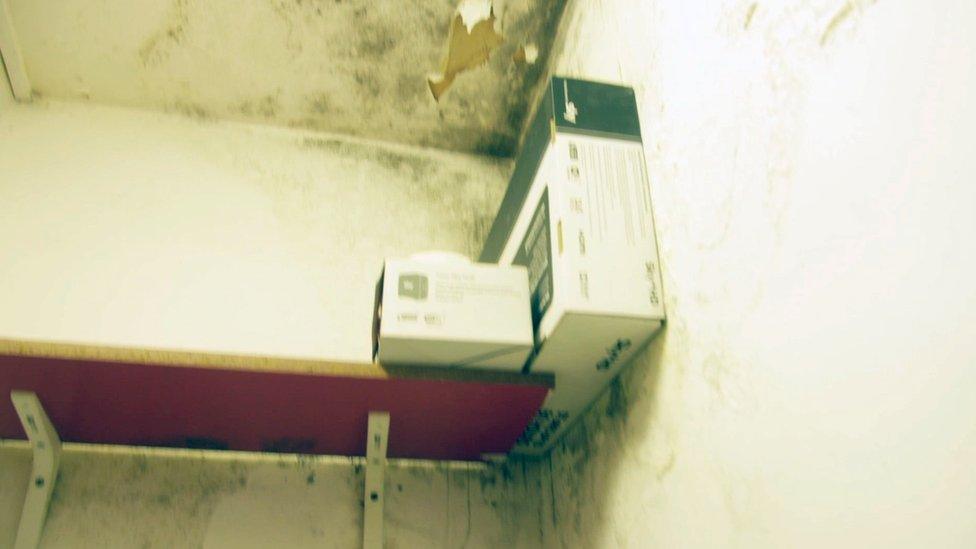
Lisa's mortgage company paid the costs, but it meant her mortgage increased by £600 a month.
"I couldn't even be in that flat any more because it depressed me so much.
"I'm struggling, I'm on antidepressants, I'm going to a therapist, everything's just drowning me.
"It came to a point where I did want to commit suicide and my anxiety went completely off the rails. If I didn't have the support of my friends I think I would have done it."
As well as an emotional toll, the situation affected Lisa's physical health too.
One day she says she woke up "and my whole left side was numb", she explains. "I was slurring, I thought I was having a stroke."
'Trapped'
There are four million leasehold properties in England and Wales.
On Thursday, the government announced a plan for all new-build houses to be sold as freehold in what it describes as "a bold move to tackle unfair leasehold practices and prevent future homeowners from being trapped in exploitative arrangements".
Communities Secretary James Brokenshire said it was "committed to taking bold action to reform the sector and will be pressing ahead as soon as parliamentary time allows - helping us deliver our promise to make the home buying and selling process quicker, cheaper and easier".
But the NLC's Katie Kendrick wants leaseholds stopped altogether.
"When you've worked really hard for your home that you think that you own, and then have that penny drop moment to realise you own absolutely nothing, it's absolutely devastating.
"People are trapped and they need to be released from this."

Garrii Bailey says the stress over his leasehold has caused him anxiety
For Garrii Bailey, who bought his Victorian conversion flat in 2006, stress over the leasehold has caused him anxiety.
He was paying about £270 a year for ground rent and management fees at the time of purchase, but when a new freeholder took over costs rose. He received an annual service charge invoice for £1,240.
"If I pay them I'm going to be short on my mortgage, or short on bills," he explains.
"So the pressure that's been put on me is absolutely horrible. My antidepressants have doubled in dosage because sometimes I just can't cope."
Garrii sees the system as deeply unfair.
"I had to save for that deposit like anyone buying a freehold property would.
"I pay my mortgage exactly the same as somebody that has a freehold, but I'm treated as a rental tenant."
'Unaware of obligations'
In March, the Housing, Communities and Local Government Committee called for the system to be reformed.
It said: "Many of the leaseholders we heard from were not aware of the differences between freehold and leasehold at the point of purchase, in particular the additional costs and obligations that come with a leasehold property."
But the Home Builders Federation says the leasehold model "provides a secure form of ownership for millions of homeowners and gives mortgage providers the assurance to lend".
In a statement, it added: "While alternative structures exist in other countries, these are not without drawbacks - often requiring homeowners to take on greater responsibility for the oversight of their buildings and estates.
"Conditions, including ground rents, are set out in sales contracts and leases and buyers should receive advice from their legal adviser."
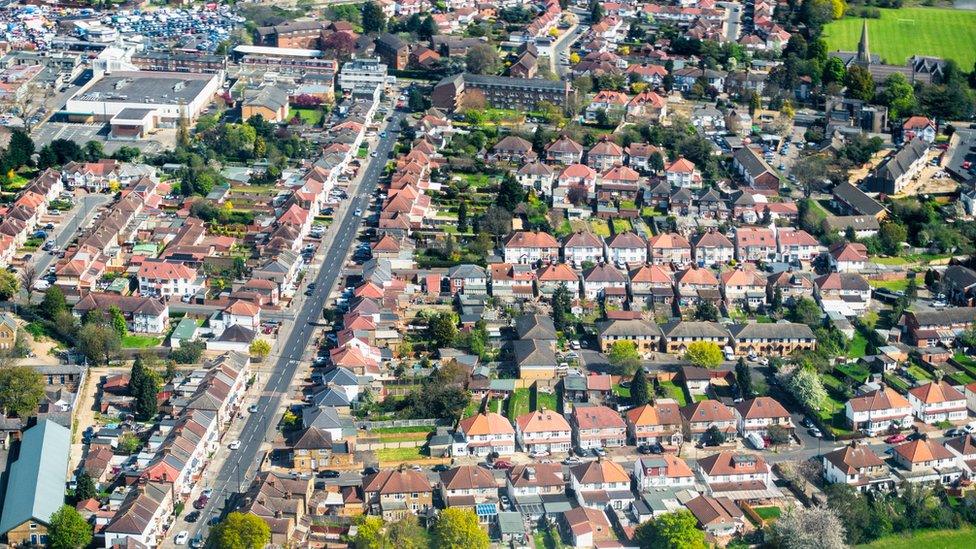
For Lisa, it is not just about what she sees as unseen costs, but what she sees as a "lack of support" too.
"I had no clue what to do, no help," she adds, saying solicitors' fees also spiralled.
"It's a joke, the way [the leasehold system] is run. I think it's a joke.
"[Freeholders] don't care, money talks in this situation."

Information and advice
If you or someone you know is struggling with issues raised by this story, find support through BBC Action Line.

Follow the BBC's Victoria Derbyshire programme on Facebook, external and Twitter, external - and see more of our stories here.
- Published11 April 2019
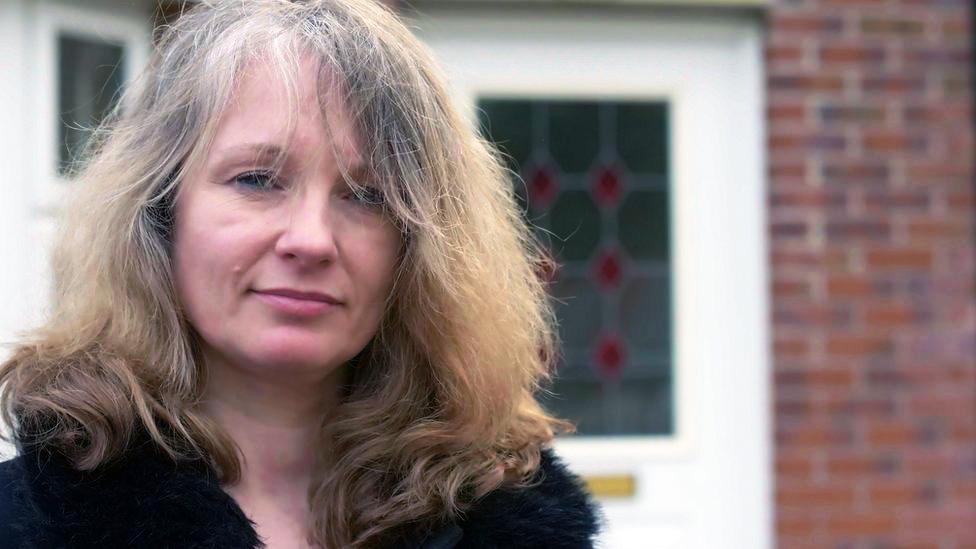
- Published2 February 2017
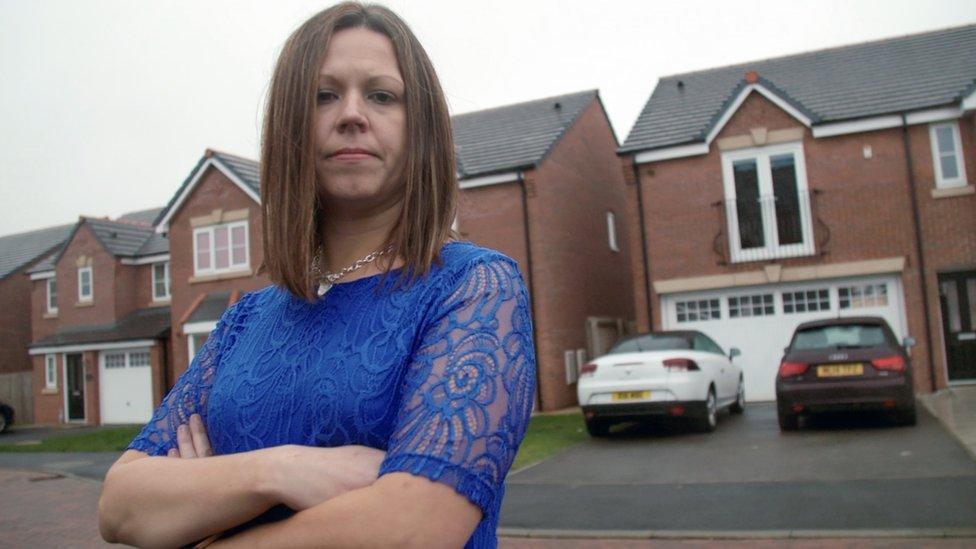
- Published12 June 2019
